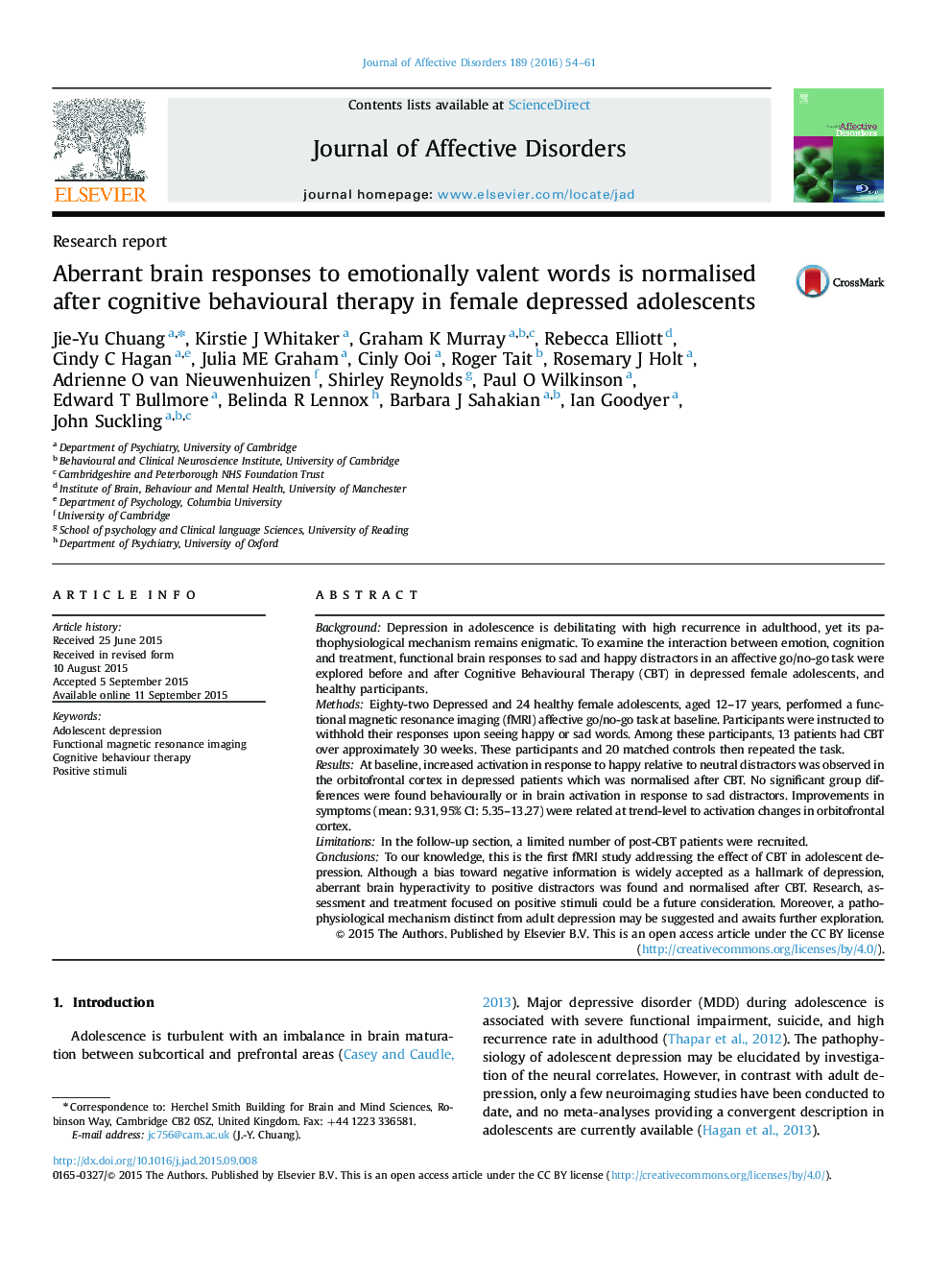| کد مقاله | کد نشریه | سال انتشار | مقاله انگلیسی | نسخه تمام متن |
|---|---|---|---|---|
| 6230836 | 1608136 | 2016 | 8 صفحه PDF | دانلود رایگان |
- No bias toward negative information was found in female depressed adolescents.
- Abnormal hyperactivity to positive distractors was found in the orbitofrontal cortex.
- This aberrant brain activity was normalized after cognitive behavioural therapy.
- A mechanism distinct from adult depression may be suggested in adolescent depression.
BackgroundDepression in adolescence is debilitating with high recurrence in adulthood, yet its pathophysiological mechanism remains enigmatic. To examine the interaction between emotion, cognition and treatment, functional brain responses to sad and happy distractors in an affective go/no-go task were explored before and after Cognitive Behavioural Therapy (CBT) in depressed female adolescents, and healthy participants.MethodsEighty-two Depressed and 24 healthy female adolescents, aged 12-17 years, performed a functional magnetic resonance imaging (fMRI) affective go/no-go task at baseline. Participants were instructed to withhold their responses upon seeing happy or sad words. Among these participants, 13 patients had CBT over approximately 30 weeks. These participants and 20 matched controls then repeated the task.ResultsAt baseline, increased activation in response to happy relative to neutral distractors was observed in the orbitofrontal cortex in depressed patients which was normalised after CBT. No significant group differences were found behaviourally or in brain activation in response to sad distractors. Improvements in symptoms (mean: 9.31, 95% CI: 5.35-13.27) were related at trend-level to activation changes in orbitofrontal cortex.LimitationsIn the follow-up section, a limited number of post-CBT patients were recruited.ConclusionsTo our knowledge, this is the first fMRI study addressing the effect of CBT in adolescent depression. Although a bias toward negative information is widely accepted as a hallmark of depression, aberrant brain hyperactivity to positive distractors was found and normalised after CBT. Research, assessment and treatment focused on positive stimuli could be a future consideration. Moreover, a pathophysiological mechanism distinct from adult depression may be suggested and awaits further exploration.
Journal: Journal of Affective Disorders - Volume 189, 1 January 2016, Pages 54-61
